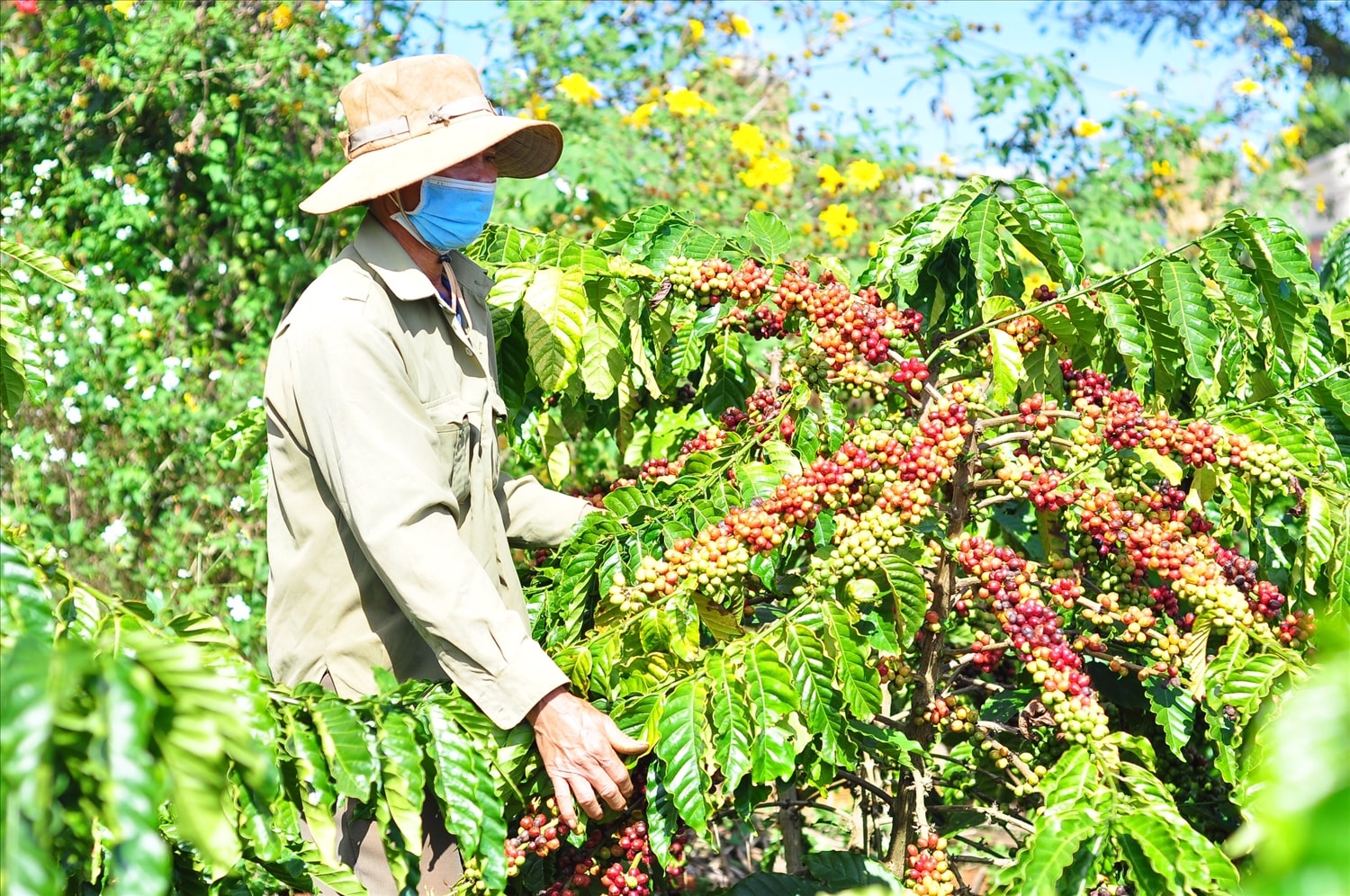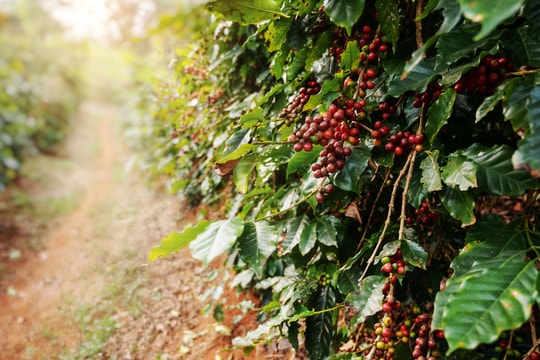Coffee price today April 7, 2025: Lowest level in the past 3 months
Today's domestic coffee price on April 7 is at 126,000 - 127,200 VND/kg. Domestic and world coffee prices have dropped sharply in the past week, currently at their lowest level in 3 months since January 2025.
Domestic coffee prices today
Domestic coffee prices today, April 7, 2025, in the Central Highlands region remained unchanged compared to yesterday, fluctuating between 126,000 - 127,200 VND/kg.
Accordingly, traders in Dak Nong province are purchasing coffee at the highest price of 127,200 VND/kg. No change compared to yesterday.
Similarly, coffee price in Dak Lak province is 127,200 VND/kg, unchanged from yesterday.
Coffee prices in Gia Lai province remained unchanged and were traded at 127,000 VND/kg.
In Lam Dong province, coffee prices remained unchanged at VND126,000/kg.

At the end of last week, coffee prices in the Central Highlands region decreased from 5,100 to 5,200 VND/kg compared to the previous week, due to concerns about the 46% reciprocal tax that the US imposed on imported goods from Vietnam.
In particular, coffee prices in Dak Lak and Dak Nong provinces are both down 5,100 VND/kg compared to last week. Next is coffee prices in Gia Lai province down 5,200 VND/kg.
Similarly, coffee prices in Lam Dong province decreased by VND5,200/kg last week. Thus, domestic coffee prices are now at their lowest level in the past 3 months, since the end of January 2025.
World coffee prices today
Coffee prices on the world market fell sharply on both exchanges:
At the end of last week, the online price of robusta coffee for May 2025 delivery on the London Stock Exchange stood at 5,112 USD/ton, down sharply by 4.2% (225 USD/ton) compared to the previous trading session; the contract for July 2025 delivery decreased by 4.7% (249 USD/ton), reaching 5,105 USD/ton.
On the New York Stock Exchange, the price of Arabica coffee for delivery in May 2025 decreased by 3.8% (14.3 US cents/pound) last week, down to 365.7 US cents/pound; the contract for delivery in July 2025 decreased by 3.5% (13.1 US cents/pound), down to 363.3 US cents/pound.
World coffee prices are falling sharply due to investors' risk-off sentiment in the face of President Donald Trump's new tariff policy. This move has severely affected the asset market in general and coffee in particular.
New tariffs on imports from several major coffee-producing countries have created a major shock. Brazil and Colombia are facing a 10% tariff, while goods from Vietnam – including coffee – face a 46% tariff. These tariffs have pushed up import costs, putting particular pressure on food companies like Starbucks and Mondelēz. Starbucks shares fell more than 11% on the news.
Notably, the US produces only about 0.2% of the coffee consumed, mostly in Hawaii. The rest of the supply depends on imports, so high tariffs will not stimulate domestic production. On the contrary, they may reduce consumer demand by forcing retail prices of coffee and chocolate to increase.
The coffee market is also seeing a correction after a long period of strong price increases. Some investors and large buyers see this as an opportunity to counter the recent surge.
In addition to tax policy, the market is also being affected by forecasts of supply shortages. Forecasts show that global coffee production could be in deficit for the fourth consecutive year, due to lower output in Vietnam and Brazil. In Vietnam, despite lower output, high export prices could help total turnover in the 2024/25 crop year reach between $5 billion and $6 billion.
The sharp drop in coffee prices is considered a temporary reaction to psychological factors, not due to changes in actual supply and demand. In the context that the US cannot produce coffee itself but is the leading consumer, the business community believes that coffee prices will soon recover when the market returns to fundamental factors.





